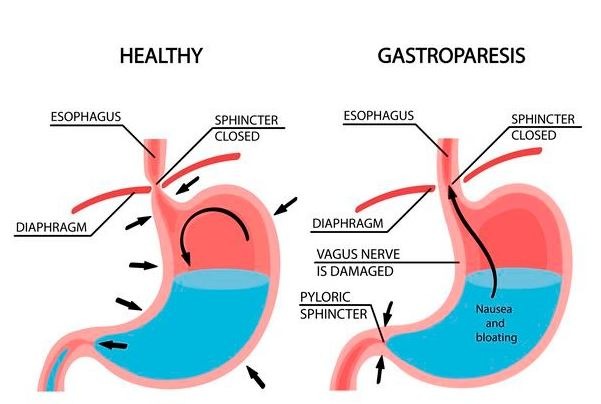Understanding Gastroparesis: Causes, Symptoms, and Treatment
"Learn about gastroparesis: its causes, symptoms, and treatment options. Understand how to identify and manage gastroparesis for improved digestive health and well-being."


Introduction
Gastroparesis is a medical condition that affects the normal movement of the muscles in the stomach, preventing it from emptying properly. This condition can lead to a variety of uncomfortable symptoms and can significantly impact a person's quality of life. In this article, we will explore the causes, symptoms, and treatment options for gastroparesis.
Causes of Gastroparesis
Gastroparesis can be caused by a variety of factors, including:
Nerve damage: Damage to the nerves that control the stomach muscles can disrupt the normal movement of food through the digestive system.
Diabetes: High blood sugar levels can damage the nerves that regulate stomach emptying.
Medications: Certain medications, such as opioids and antidepressants, can slow down the movement of the stomach muscles.
Surgery: Surgeries involving the stomach or esophagus can sometimes lead to gastroparesis.
Symptoms of Gastroparesis
The symptoms of gastroparesis can vary from person to person, but common symptoms include:
Nausea and vomiting
Feeling full quickly after eating
Abdominal bloating
Heartburn
Poor appetite and weight loss
Malnutrition
If you experience any of these symptoms, it is important to consult a healthcare professional for an accurate diagnosis.
Treatment Options
While there is no cure for gastroparesis, there are several treatment options available to manage the symptoms and improve quality of life:
Dietary changes: Eating smaller, more frequent meals and avoiding foods that are high in fat and fiber can help ease symptoms.
Medications: Your doctor may prescribe medications to help stimulate stomach contractions and improve digestion.
Feeding tubes: In severe cases, a feeding tube may be necessary to ensure adequate nutrition.
Surgical options: In some cases, surgery may be recommended to remove blockages or implant a device that helps regulate stomach emptying.
It is important to work closely with your healthcare team to develop a personalized treatment plan that suits your individual needs.
Conclusion
Gastroparesis is a chronic condition that can significantly impact a person's digestive health. Understanding the causes, symptoms, and treatment options for gastroparesis is crucial for managing the condition effectively. If you suspect you may have gastroparesis, seek medical attention for a proper diagnosis and to discuss appropriate treatment options.
